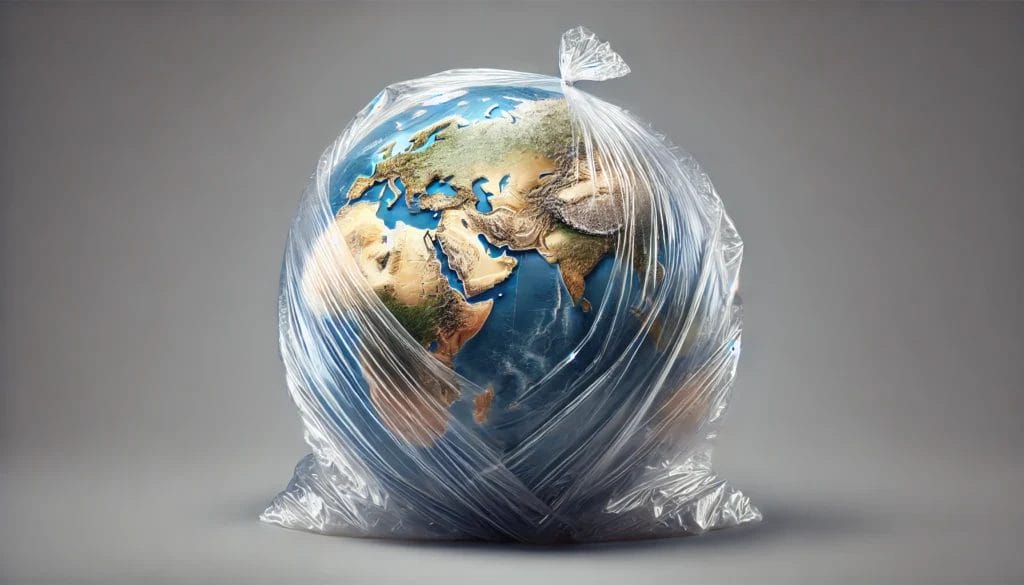Login Account
To view the article please login or create an account
- Corporate Social Responsibility
- Ethical Consumption Trends
Let’s Pack the Future Without Plastic: Innovative Solutions and Collective Action for a Global Challenge – August 2024

The alarming reality of our plastic age
In less than seven decades, global plastic production has surged 245 times (UN). The current production could even double by 2040 (WWF, 2021). Today, plastic is nearly unavoidable, especially in packaging, which accounts for 40% of plastic production in Europe (Eurostat). In 2021, the average EU resident generated 36 kilograms of plastic packaging waste (Eurostat). Without decisive action, this waste could increase by 46% by 2030 (European Commission).
This overproduction presents serious environmental challenges. Plastic, often designed for single use, lingers in nature for centuries, causing devastating ecological damage at every stage of its life cycle. From extracting non-renewable resources to accumulating almost indestructible waste, the impact is profound. This tidal wave of waste has contributed to the formation of the infamous “7th continent” of floating trash, disrupting marine life and ecosystems. If current trends persist, the Ellen MacArthur Foundation warns that by 2050, the oceans could contain more plastic than fish by weight. Microplastics now infiltrate every corner of the Earth—alarmingly, they’ve even been found in human organs and, more recently, in our brains.
The rising voice of consumers
Fortunately, awareness is growing. A Two Sides study (2020) reveals that 70% of European consumers are actively trying to reduce their plastic packaging use. They demand less plastic, more recycling, and a shift towards sustainable alternatives. Moreover, rejecting brands that fail to take action has become increasingly common. The push for banning single-use plastics and the rising popularity of bulk purchases show just how serious this movement has become. Consumers are not just calling for action; they are willing to change their habits to create a future that respects the environment and the well-being of all living beings.
Towards sustainable solutions
Solutions are gradually emerging. Reusable packaging and innovations like biodegradable and bio-based materials are paving the way for promising sustainable alternatives. For instance, toothpaste tablets, solid shampoos, laundry sheets, and refillable cleaning products are effectively replacing traditional plastic packaging. However, for these innovations to scale up, we need ambitious regulations to support them. The Global plastic pollution treaty could mark a critical turning point by establishing universal rules for plastic production and management. In the meantime, the European Parliament has introduced measures to reduce, reuse, and recycle packaging by 2030, including banning unnecessary plastic packaging. Under the European Commission’s Packaging and Packaging Waste Directive, at least 70% of all packaging waste must be recycled by 2030.
Initiatives such as Plastic Free July and Ocean Initiatives demonstrate that collective action can accelerate the shift towards a plastic-free future. Additionally, movements led by NGOs like the Plastics Pact Network, the Break Free From Plastic Movement, Ocean Cleanup, the Plastic Pollution Coalition, and the Recycle Now Campaign play a vital role in promoting circular economies and raising public awareness.
Ultimately, only a concerted effort between governments, businesses, and citizens will transform our relationship with plastic. A future without plastic waste is not a utopia, but an achievable goal. In this shift towards systemic change, each of us has a crucial role. Every action counts as we work together to build a world that respects our planet.
Other Posts


Interested in writing for the community?
Your contributions will nourish our collective intelligence and ignite constructive debates.
Write with us!
